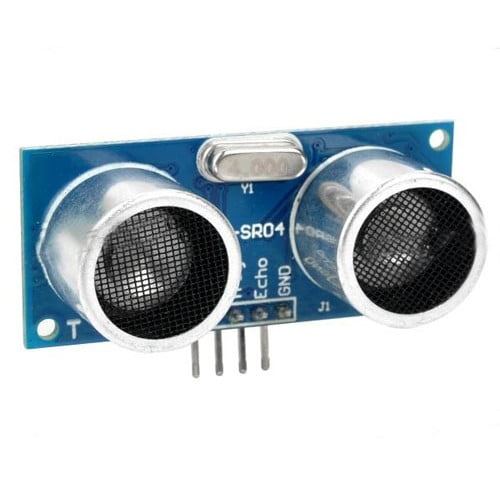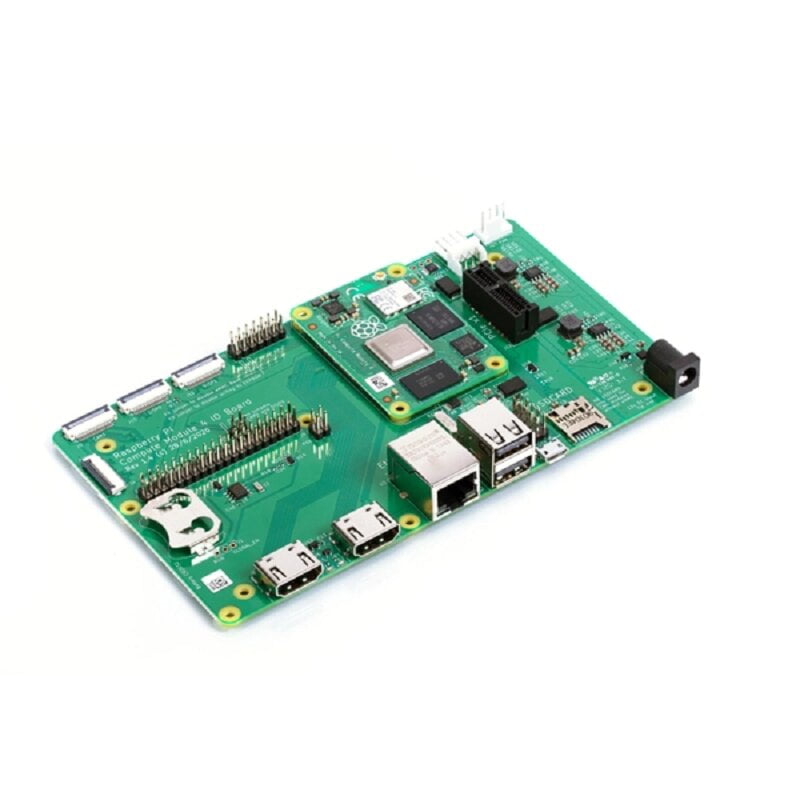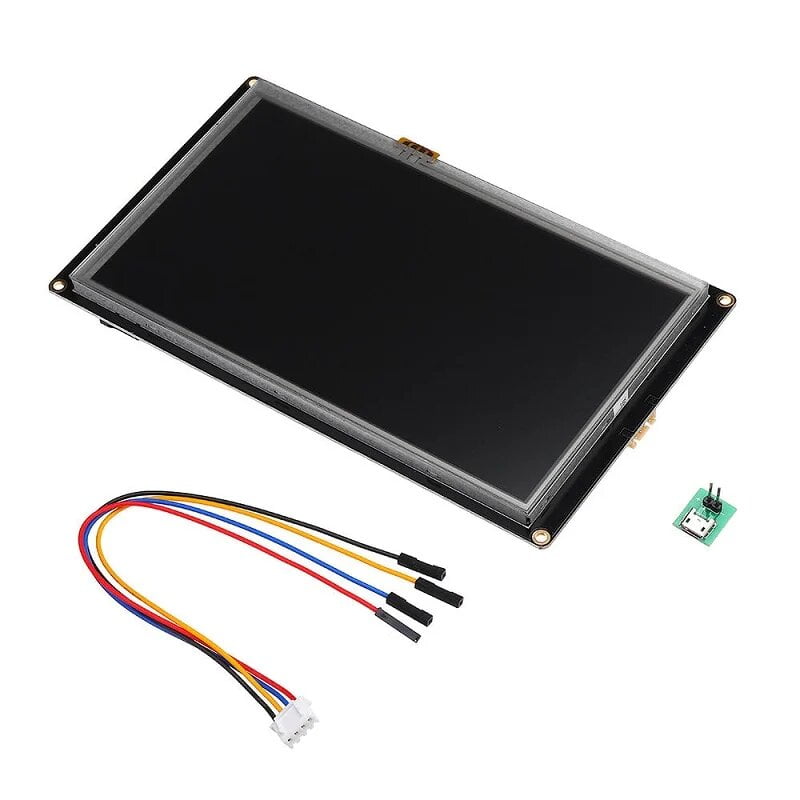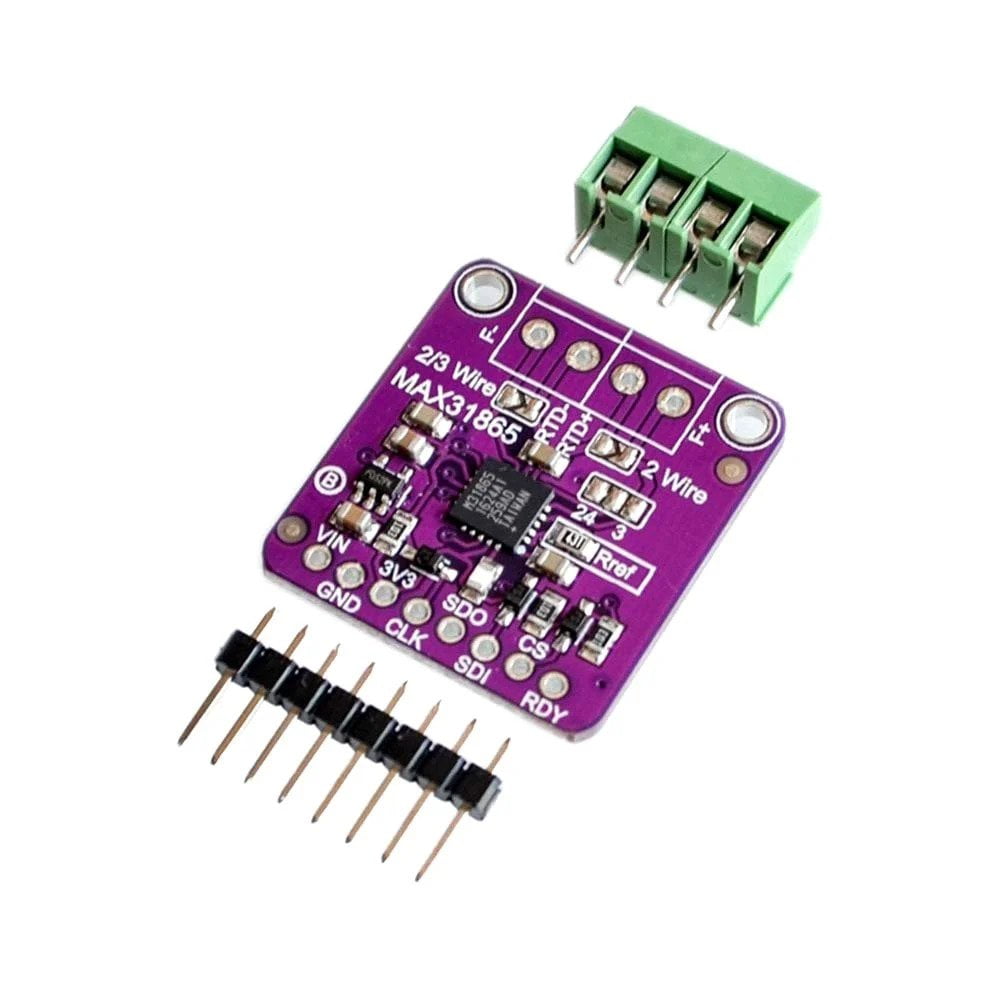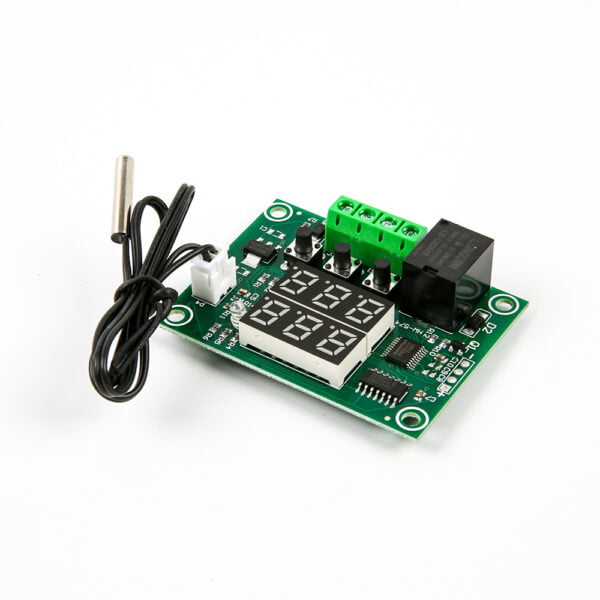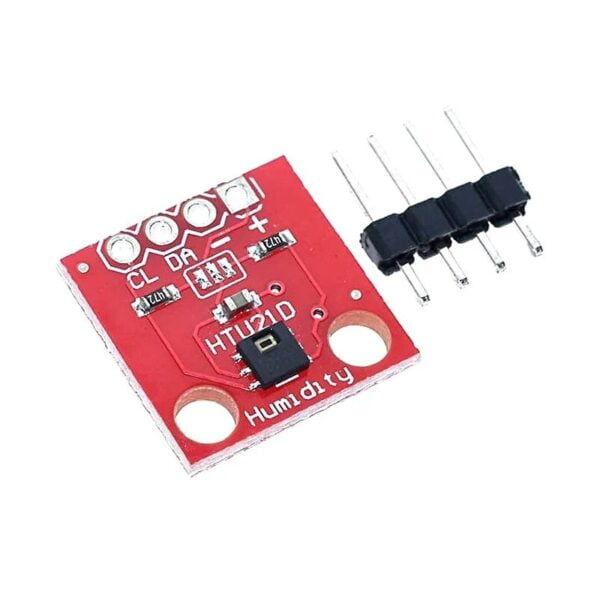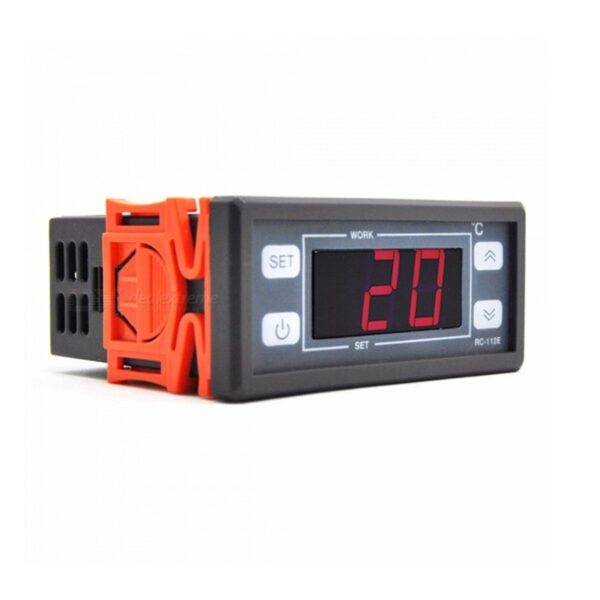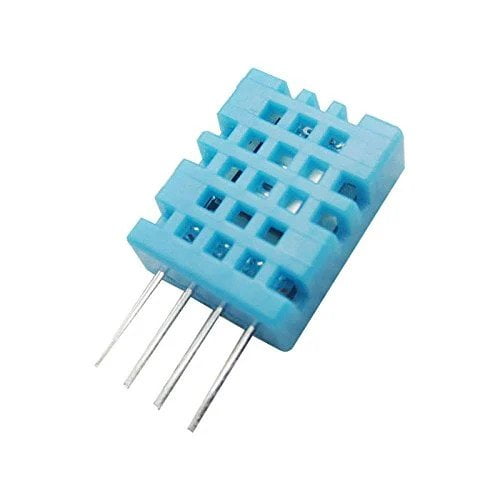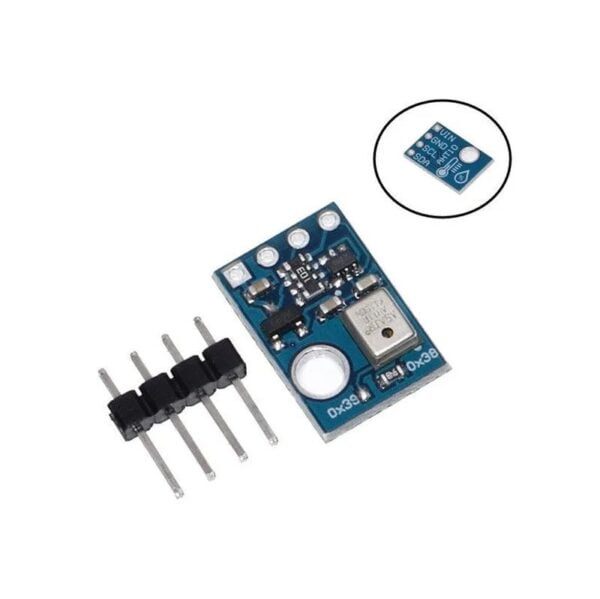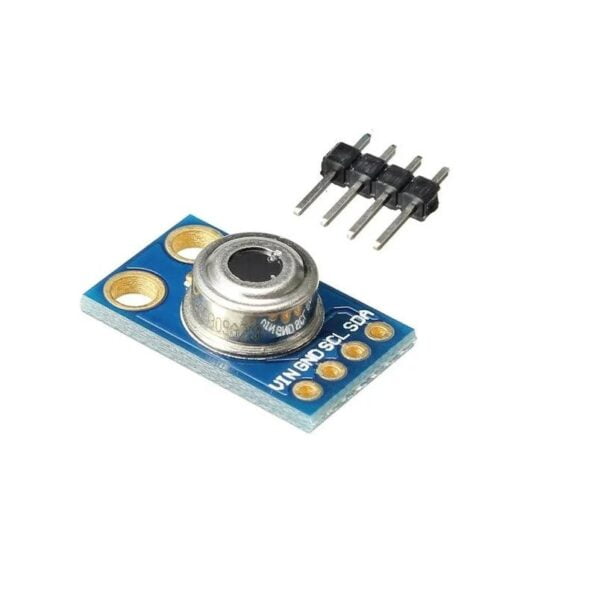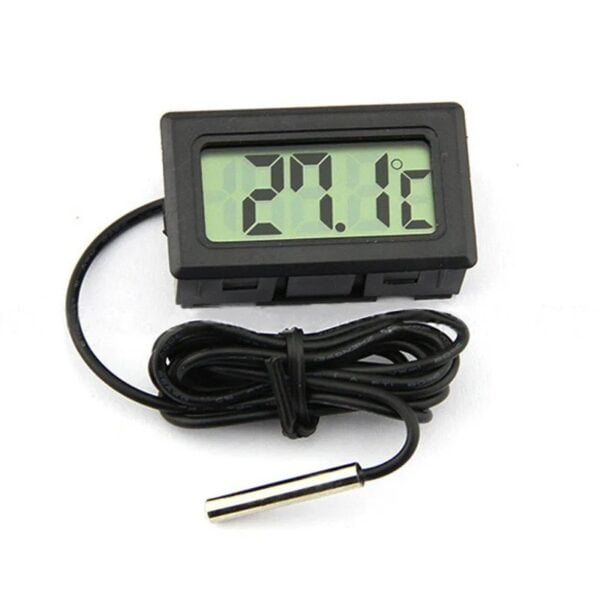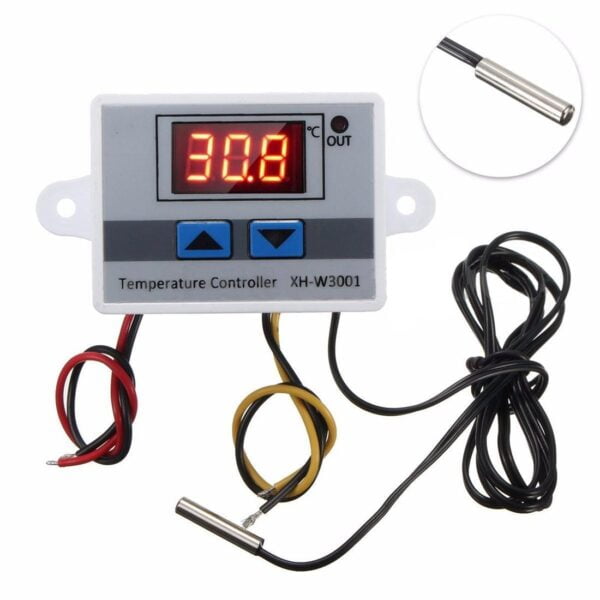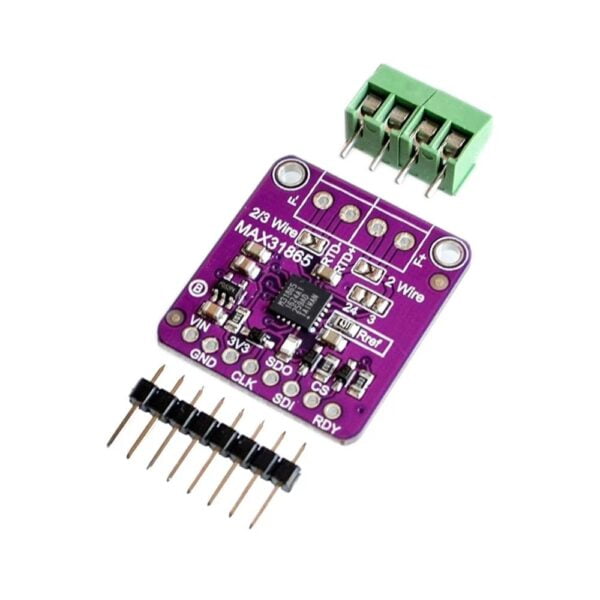MAX31865 RTD Platinum Resistance Temperature Detector Module PT100-PT1000. Resistance temperature detectors (RTDs) are temperature sensors that contain a resistor that changes resistance value as its temperature changes, basically a kind of thermistor. In this sensor, the resistor is actually a small strip of Platinum with a resistance of 100 ohms at 0 ºC, thus the name PT100.
Compared to most NTC/PTC thermistors, the PT type of RTD is much most stable and precise (but also more expensive) PT100’s have been used for many years to measure temperature in laboratory and industrial processes, and have developed a reputation for accuracy (better than thermocouples), repeatability, and stability.
The MAX31865 is an easy-to-use thermistor-to-digital output converter optimized for platinum resistance temperature detectors (RTDs). The external resistor sets the RTD sensitivity, and the high precision Δ- Σ ADC converts the ratio of the RTD resistor to the reference resistor into a digital output. The MAX31865 has overvoltage protection up to ±45V and provides configurable RTD and cable open and short-circuit condition detection.
Features:
- Integration Lowers System Cost, Simplifies Design
- Efforts, and Reduces Design Cycle Time
- Simple Conversion of Platinum RTD Resistance to Digital Value
- Handles 100Ω to 1kΩ (at 0°C) Platinum RTDs (PT100 to PT1000)
- Compatible with 2-, 3-, and 4-Wire Sensor Connections
- SPI-Compatible Interface
- 20-Pin TQFN and SSOP Packages
- High Accuracy Facilitates Meeting Error Budgets
- 15-Bit ADC Resolution; Nominal Temperature
- Resolution 0.03125NC (Varies Due to RTD Nonlinearity)
- Total Accuracy Over All Operating Conditions:
- 0.5NC (0.05% of Full Scale) max
- Fully Differential VREF Inputs
- 21ms (max) Conversion Time
- Integrated Fault Detection Increases System Reliability
- ±45V Input Protection
- Fault Detection (Open RTD Element, RTD Shorted to Out-of-Range Voltage, or Short Across RTD Element)
